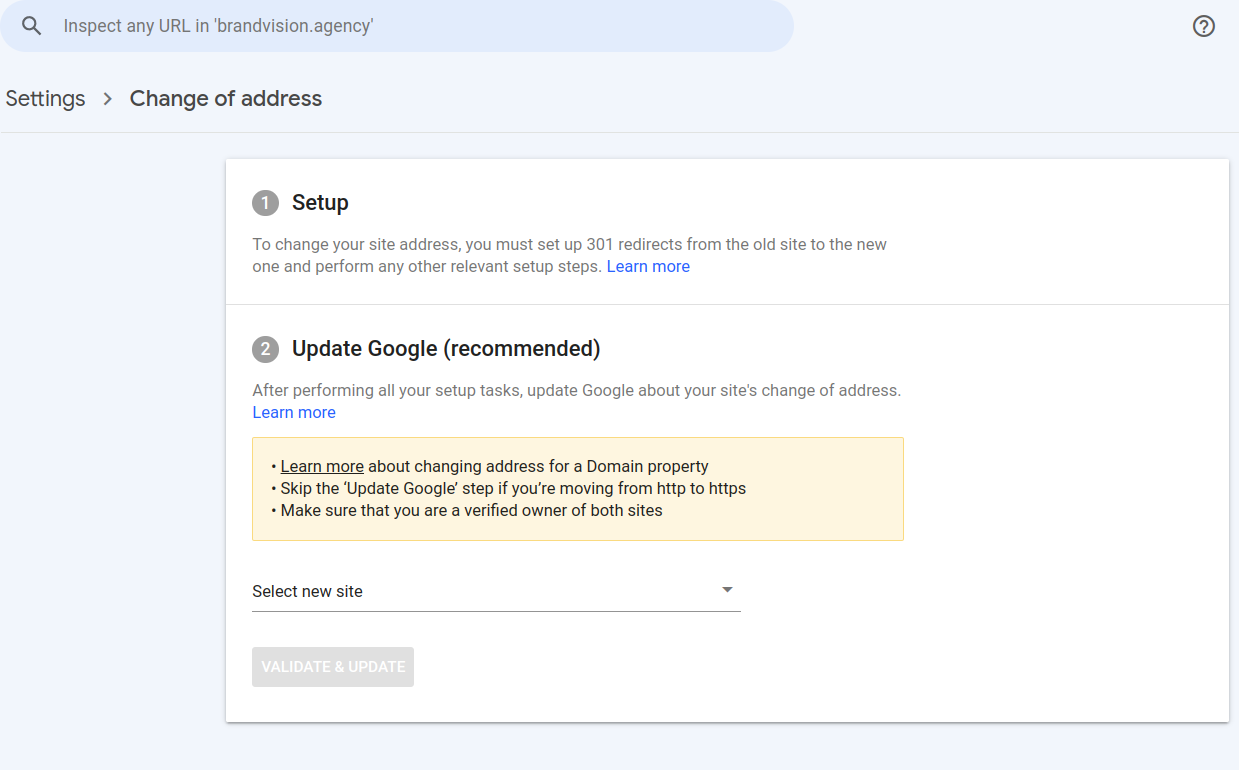Moz Q&A is closed.
After more than 13 years, and tens of thousands of questions, Moz Q&A closed on 12th December 2024. Whilst we’re not completely removing the content - many posts will still be possible to view - we have locked both new posts and new replies. More details here.
What is the safest way to redirect for best SEO benefits?
-
What is the safest way to redirect for best SEO benefits? Example:
loodgieter-aanhuis.nl -> loodgieters-ambacht.nl
Does someone have any technical information on how to (root) redirect for best SEO practices?
-
@brandvision_ I just want to thank you for the post I've been looking for for a long time)
-
If you want to change your domain from:
loodgieter-aanhuis.nl -> loodgieters-ambacht.nl
follow these steps:-
Implement a thorough 301 redirect strategy, mapping each URL from the old domain to the equivalent URL on the new domain.
-
Update internal links across the site to ensure visitors and search engines find relevant content quickly.
-
Run a crawl of the new website to ensure 301 redirects have been implemented successfully.
-
Set up and verify a new Search Console account for the new domain.
-
Submit a sitemap for the new domain to help Google crawl the new website.
-
Submit a change of address in Google Search Console to inform Google that your old domain has been migrated to your new domain.
 Create 301 redirections to new pages
Create 301 redirections to new pages
-
Browse Questions
Explore more categories
-
Moz Tools
Chat with the community about the Moz tools.
-
SEO Tactics
Discuss the SEO process with fellow marketers
-
Community
Discuss industry events, jobs, and news!
-
Digital Marketing
Chat about tactics outside of SEO
-
Research & Trends
Dive into research and trends in the search industry.
-
Support
Connect on product support and feature requests.
Related Questions
-
On-page SEO
This is a question for the organic SEO experts, once you added the main keyword that you want to rank for in the homepage title, meta title plus meta description, perhaps once or twice in the text on the homepage. How often do you then write it in the content marketing, say blog posts, we want to rank higher on Google for "SEO agencies Cardiff" however if you mention this in the blog posts too much say once a week, this could lead to over optimisation issues?
On-Page Optimization | | sarahwalsh1 -
Unsolved How much time does it take for Google to read the Sitemap?
Hi there, I could use your help with something. Last week, I submitted my sitemap in the search console to improve my website's visibility on Google. Unfortunately, I got an error message saying that Google is not reading my sitemap. I'm not sure what went wrong. Could you take a look at my site (OceanXD.org) and let me know if there's anything I can do to fix the issue? I would appreciate your help. Thank you so much!
Intermediate & Advanced SEO | | OceanXD1 -
What are the SEO ramifications of domain redirection?
Hi Moz Community! I was just trying to set up our global site and got this message: "Redirect detected
SEO Tactics | | Padmagandhini
We have detected that the domain bhaktimarga.org redirects to prodfront-coli.bhaktimarga.mediactive-network.net. We do not recommend tracking a redirect URL. Would you like to track prodfront-coli.bhaktimarga.mediactive-network.net for this campaign instead?"
6358703c-d8ef-4c0a-83a9-c948d370d743-image.png What's interesting is when you go to the site, Bhaktimarga.org, it shows our domain in the URL bar. Is this done for performance and masks the hosting provider domain? I haven't talked to website developers about this yet, but my main question is...Does this have any SEO ramification? Thanks so much,
Padma0 -
Redirecting an Entire Website?
Is it best to redirect an old website to a new website page by page to like pages or just the entire site all at once to the home page of the new site? I do have about 10 good pages on the site that are worth directing to corresponding pages on the new site. Just trying to figure out what is going to preserve the most link juice. Thanks for the help!
Technical SEO | | photoseo10 -
Is page speed important to improve SEO ranking?
I saw on a SEO Agency's site (https://burstdgtl.com/search-engine-optimization/) that page speed apparently affects Google ranking. Is this true? And if it is, how do I improve it, do I need an agency?
On-Page Optimization | | jasparcj0 -
Multilang site: Auto redirect 301 or 302?
We need to establish if 301 or 302 response code is to be used for our auto redirects based on Accept-Language header. https://domain.com
International SEO | | fJ66doneOIdDpj
30x > https://domain.com/en
30x > https://domain.com/ru
30x > https://domain.com/de The site architecture is set up with proper inline HREFLANG.
We have read different opinions about this, Ahrefs says 302 is the correct one:
https://ahrefs.com/blog/301-vs-302-redirects/
302 redirect:
"You want to redirect users to the right version of the site for them (based on location/language)." You could argue that the root redirect is never permanent as it varies based on user language settings (302)
On the other hand, the lang specific redirects are permanent per language: IF Accept-Language header = en
https://domain.com > 301 > https://domain.com/en
IF Accept-Language header = ru
https://domain.com > 301 > https://domain.com/ru So each of these is 'permanent'. So which is the correct?0 -
Howdy, do curse words on your content article hurt SEO in any way or form?
howdy, do curse words on your content article hurt SEO in any way or form? and if so is there a "list" of registered curse keywords that should be avoided?
On-Page Optimization | | david3050